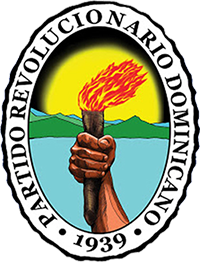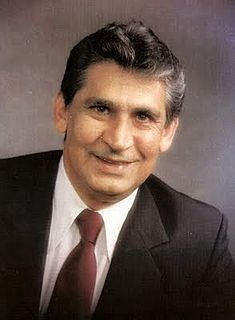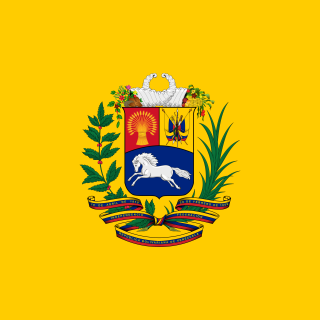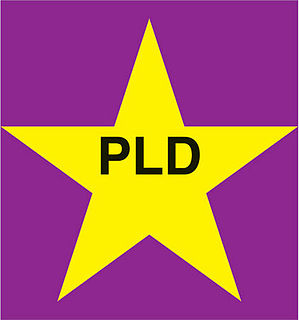
The Dominican Republic is a representative democracy, where the President of the Dominican Republic functions as both the head of the government and head of the multi-party system. Executive power is exercised by the government. Legislative power is vested in the bicameral National Congress. The Judiciary is independent of the executive and the legislature.
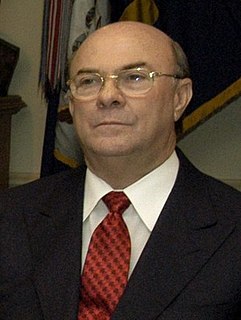
Rafael Hipólito Mejía Domínguez, is a Dominican politician who served as President of the Dominican Republic from 2000 to 2004.

Danilo Medina Sánchez is a Dominican politician and the current President of the Dominican Republic, since 2012.
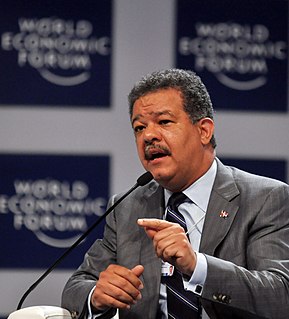
Leonel Antonio Fernández Reyna is a Dominican lawyer, academic, and was President of the Dominican Republic from 1996 to 2000 and from 2004 to 2012. Since January 2016, he is the President of the EU–LAC Foundation.
José Francisco Peña Gómez was a politician from the Dominican Republic. He was the leader of the Dominican Revolutionary Party (PRD), a three-time candidate for president of the Dominican Republic and former Mayor of Santo Domingo. He is considered, along with Joaquín Balaguer and Juan Bosch, as one of the most prominent Dominican political figures of the 20th century. His widow Peggy Cabral is currently one of the two co-Presidents of the PRD.

The Dominican Civil War took place between April 24, 1965, and September 3, 1965, in Santo Domingo, Dominican Republic. It started when civilian and military supporters of former President Juan Bosch overthrew acting President Donald Reid Cabral. The coup prompted General Elías Wessin y Wessin to organise elements of the military loyal to President Reid, known as loyalists, initiating an armed campaign against the so-called constitutionalist rebels. Allegations of foreign support for the rebels led to a United States intervention in the conflict, which later transformed into an Organization of American States occupation of the country. Elections were held in 1966, in the aftermath of which Joaquín Balaguer was elected into the presidential seat. Later in the same year international troops departed from the country.
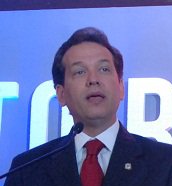
Víctor Orlando Bisonó Haza nicknamed Ito Bisonó, is a Dominican politician, business administration and current member of the Chamber of Deputies of the Dominican Republic representing the 2nd circunscription of the National District since the year 2002. Bisonó is a member of the Social Christian Reformist Party, and he has been Second Vice President of the Dominican-Haitian Chamber of Commerce.
Elías Wessin y Wessin was a Dominican politician and Dominican Air Force general. Wessin led the military coup which ousted the government of Dominican President Juan Bosch in 1963, replacing it with a triumvirate. Wessin was also a key figure in the ensuing Dominican Civil War, which led to a United States military intervention into and occupation of the Dominican Republic in 1965.

Presidential elections were held in the Dominican Republic on 16 May 2000. Hipólito Mejía of the Dominican Revolutionary Party (PRD) won the election, defeating Danilo Medina of the Dominican Liberation Party (PLD) and former president Joaquín Balaguer of the Social Christian Reformist Party (PRSC). Voter turnout was 76.1%.
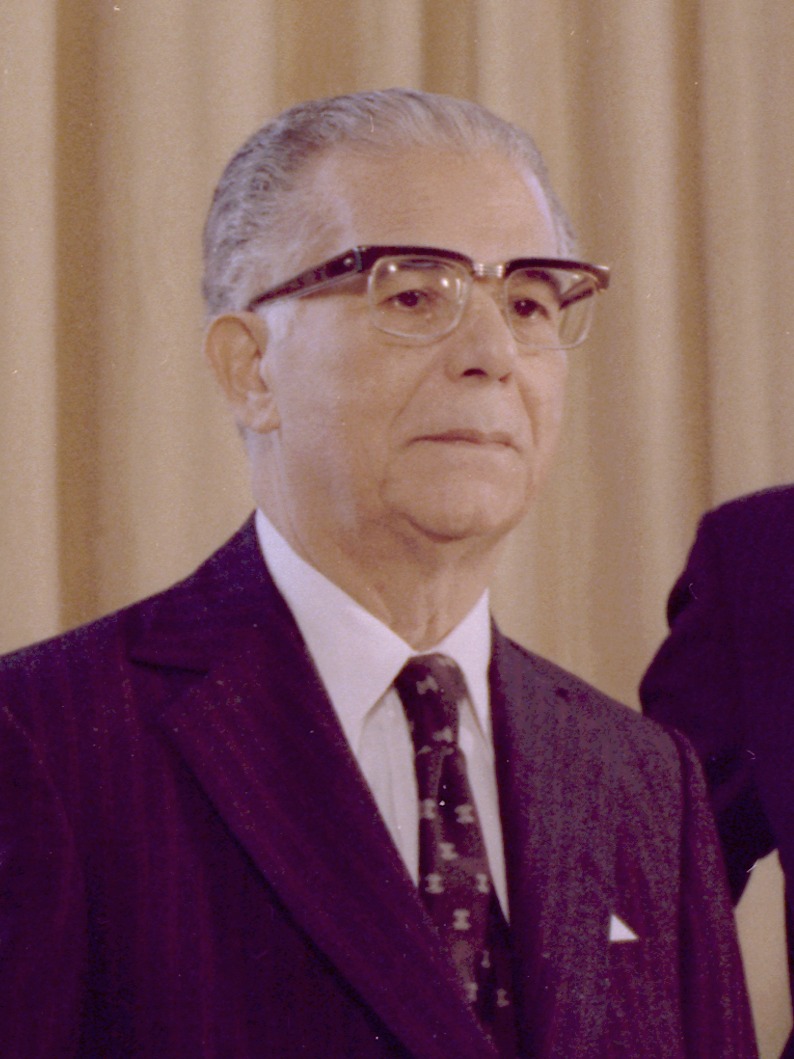
General elections were held in the Dominican Republic on 1 June 1966. Following the 1963 coup which toppled elected president Juan Bosch of the Dominican Revolutionary Party, supporters of his constitutional reforms were excluded from the elections, although Bosch himself contested them. The result was a victory for Joaquín Balaguer of the Reformist Party, whilst his party also won the Congressional elections. Voter turnout was 75.6%.

General elections were held in the Dominican Republic on 16 May 1978. Following diplomatic pressure from American President Jimmy Carter, the elections were free and competitive and contested by all political parties, unlike the previous elections in the 1970s. Antonio Guzmán Fernández won the presidential election, whilst his Dominican Revolutionary Party won the Congressional elections. Voter turnout was 75.8%.

Miguel Octavio Vargas Maldonado is a civil engineer, businessman, and politician from the Dominican Republic. He is the chairman of the Dominican Revolutionary Party, a minority party allied with the PLD government and current Minister of Foreign Affairs.








